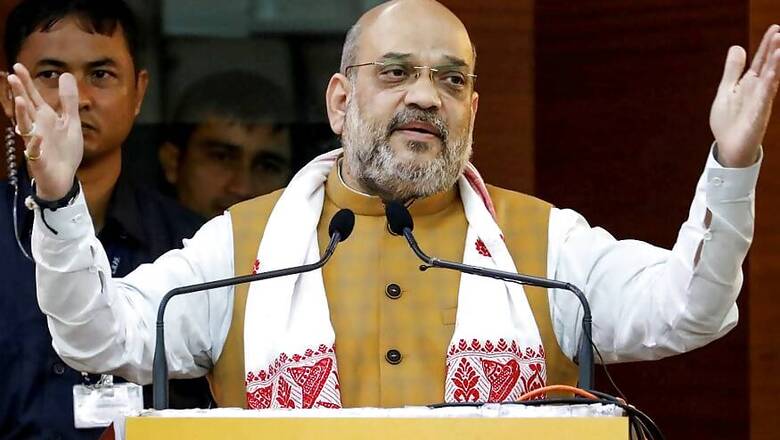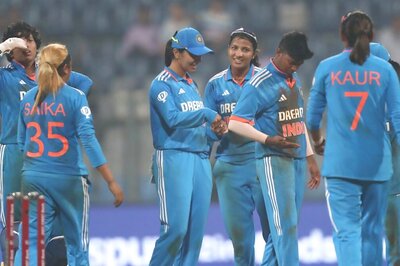
views
Kolkata: Finding itself on the back foot over the National Register of Citizens (NRC) and the National Population Register (NPR), the Bharatiya Janata Party (BJP) has decided to send Amit Shah to Kolkata to clear the narrative among the masses on what the Centre’s is actually up to over NPR. He is set to visit the Eastern state in the first week of March.
After yesterday’s devastating poll results in the national capital and BJP’s desperation to win the 2021 Assembly polls in Bengal (as a face saving exercise), the party felt it necessary to address the issue clearly, especially in Bengal, amid "confusions among the public that NPR is linked with the NRC."
Shah will be in Kolkata for one day and besides having a public meeting, he will also have an internal party meeting to evaluate the present position of the party in Bengal in the booth level.
The NPR is a Register of usual residents of the country. It is being prepared at the local (village/sub-Town), sub-district, district, state and national level under provisions of the Citizenship Act 1955 and the Citizenship (Registration of Citizens and issue of National Identity Cards) Rules, 2003.
The objective of the NPR is to create an identity database of every usual resident in the country. The database would contain demographic as well as biometric particulars.
Among other states, Bengal Assembly poll will be a prestige battle for the BJP and political experts feel Shah’s scheduled visit in March (nearly 45 days after Prime Minister Narendra Modi’s visit Kolkata where he delivered speech on various issues including citizenship issue) says it all.
Mamata is vehemently opposing NPR, NRC and CAA and making repeated attempts through public rallies/speech to make people believe that NPR is linked with NRC.
She has also appealed all the states leaders (especially the Chief Ministers of North Eastern regions) to reject NPR, NRC and CAA by terming it "a dangerous game of the BJP."
“NPR is totally related to the NRC and the CAA. Pass a resolution everywhere to withdraw it,” she had said.
Sensing that the Opposition leaders (especially Mamata) who have successfully managed to play the anti-citizenship cards against the Centre, Shah on December 24, 2019 in an interview to a news agency had clarified that, “There is no link between the NRC and NPR; I am clearly stating this today. There is no need to debate on this (NRC) as there has been no discussion on it, PM Modi was right, therd has been no discussion on it yet either in the Cabinet or in the Parliament.”
There are nearly 31 per cent Muslim voters in Bengal and the anxiety among them cannot be ruled out as Shah is not budging on the citizenship issue. Though, Mamata Banerjee had vouched to fight tooth and nail but the fear is evident among the Muslim community in the bordering areas in Bengal.
As per the Chief Minister, in Bengal so far 30 people have died due to NRC fears including three alone in Bashirhat. Most of them died after a failed struggle to put papers in line, including those showing pre-1971 lineage – as per the NRC cut-off year in Assam.
Earlier, on December 16, 2019 (five days after Citizenship Amendment Bill (CAB) was passed in the Rajya Sabha on December 11, 2019) Bengal government was the first to take an official step against CAA and NRC by staying process of NPR across the state.
In an official circular numbered ‘392-Home (NPR)/O/Cen-02/19’ dated December 16, 2019 – the letter, issued by the additional secretary, Home and Hill Affairs Department, reads, “I am directed to inform you that all activities regarding the preparation and updation of the National Population Register (NPR) are hereby stayed in West Bengal. No activity regarding NPR may be taken up without prior clearance from the state government.”
Not the least, on January 27, West Bengal became the fourth opposition-ruled state to pass a resolution against the CAA in its assembly, after Kerala, Punjab and Rajasthan.



















Comments
0 comment